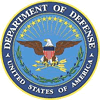|
||
|
|
||
|
DOD News Briefing with George Little from the Pentagon [...] Q: You outraged a lot of the press corps Friday -- you, this building -- or Thursday, when you came out with an anti-leak memorandum -- MR. LITTLE: Okay. I'm glad that you clarified that, Tony. Q: Right, the building. It came up -- (inaudible) -- senator, Congressman McKeon, the chairman of the House Armed Services Committee, said he was convinced no leaks of these high-profile nature that everybody's been concerned about came from the Pentagon. Yet that same day, you came out with a directive that called for active monitoring of national-level media for unauthorized disclosures. Can you give the public a sense of the rationale for this move? And have you had a lot of leaks lately? Or what's the backdrop for, George? Because it's somewhat disquieting. MR. LITTLE: Well, I think it shouldn't be disquieting. We as government officials have a solemn obligation to protect national security information, classified information. The secretary and the chairman had a very good session with the House Armed Services Committee to discuss this very issue, and we appreciate the opportunity to discuss this matter with members of the committee. The measures that we announced last week we believe are prudent to ensure that we're doing what we can internally, DOD officials ourselves, to reinforce and to re-emphasize the need for us to protect classified information. This is what this series of announcements is all about. It's about reinforcing to the personnel inside this department that we need to do all we can to protect classified information. That's really it. Q: You don't think it's going to have a chilling effect on media interplay with officials here? Every official is going to be worried that George Little or Mike Vickers is going to be parsing his words in articles to see if he gave up classified information. MR. LITTLE: Well, we have great respect for the work that you do, to report the incredible work that this building does, especially our men and women in uniform. We have tremendous respect for the press corps. This is an effort, though, to identify possible disclosures of classified information that appear in press reports. We have an obligation to take a look at reporting, and if we think there's been a disclosure of sensitive information, doesn't it behoove us, isn't it our responsibility to track down where that might be coming from? It stands to reason. Q: What steps are you going to be -- I don't mean to belabor this, but we're in the 40th anniversary of the Watergate break-in and the leaks that -- the plumbers unit that precipitated a lot of that. I mean, some people will say that you have set up a plumbers unit to go after news media and officials here. What do you say to that? MR. LITTLE: This is an effort to protect classified information. This is not an effort to go after media. That's what I would say to it. This is reinforcing our responsibilities as government officials who sign paper to protect classified information. In some cases, we have a lifelong obligation to protect classified information. And this is about upholding that obligation. That's it. Q: And not to belabor it, but I think others want to bring this up, too. The whole notion of classification in this building has degenerated into a joke, most reporters and a lot of officials would agree. What steps are you going to be taking to make sure when you analyze these news stories that it's really classified-classified versus B.S. classified information? MR. LITTLE: Okay. Well, we haven't defined precisely what steps we're going to take in concert with USDI on this matter. So I don't have the answer yet, Tony. And I can't really, as a result, answer the question in great detail. [...]
|
|
|
Source: Department of Defense
|

